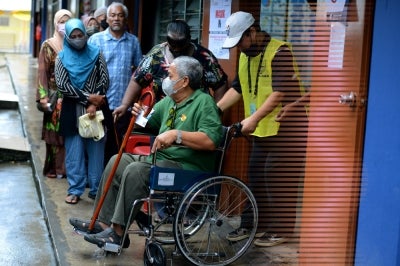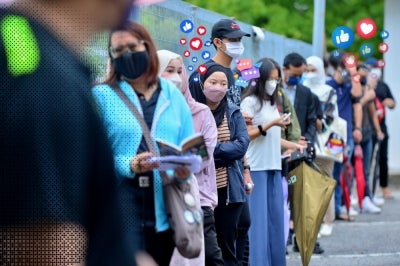Rafizi or Nurul Izzah?
When leaders fail to meet their supporters’ expectations, disappointment grows. That’s why being an Opposition leader can sometimes be easier than being part of the government.

ECONOMY Minister Datuk Seri Rafizi Ramli is a well-known figure in Malaysian politics.
His skill in public speaking has often unsettled his opponents. One of his most notable moments was his relentless criticism of the National Feedlot Corporation (NFC) scandal, which significantly weakened Barisan Nasional’s (BN) standing.
About two years ago, he engaged in a widely anticipated debate with Bachok Pas MP Mohd Syahir Sulaiman, further cementing his reputation as a strong orator.
But times have changed. Currently, PKR is holding elections for its top leadership positions. With the President’s role uncontested, the key race is for Deputy President — and Rafizi faces a formidable challenger.
His opponent is Nurul Izzah, the daughter of both the party president and the Prime Minister. The influence that comes with her family background cannot be underestimated.
This contest will not be as straightforward for Rafizi as some of his past battles. Politics is shaped not only by individual ability but also by the political climate at the time.
Opposition leaders often appear strong when outside government, but once in power, the realities of governance can limit their ability to uphold every campaign promise. This is a familiar challenge for politicians worldwide.
Malaysia has seen several power transitions in recent years, with parties making and breaking promises along the way. These shifts have helped the public gain a clearer understanding of political parties and their capabilities.
A psychological concept called the mere exposure effect explains how people tend to favour those they see more often. In politics, those frequently appearing in the media or at events generally become more popular, though this is not always guaranteed.
When leaders fail to meet their supporters’ expectations, disappointment grows. That’s why being an Opposition leader can sometimes be easier than being part of the government.
Opposition figures can voice any position without the pressure of implementing policies. However, once in government, leaders must make decisions and face the consequences. The public is often less forgiving of the challenges they encounter.
In the race between Rafizi and Nurul Izzah, Rafizi faces challenges beyond his skills. His role as Economy Minister has seen some unpopular decisions, including the removal of petrol subsidies — a move that contrasts with his earlier activism to lower fuel prices.
Nurul Izzah, while part of the ruling party, holds no ministerial position and is perceived more as an outsider, similar to how Rafizi started his career.
Who will win? Ultimately, the election reflects PKR’s democratic process. The public remains a watcher, awaiting the outcome.
Best wishes to both candidates, and may they continue to serve the nation well. Perhaps one day, one of them will become Malaysia’s Prime Minister.
Mohd Awang Idris is a Professor of Psychology at the Faculty of Arts and Social Sciences, University of Malaya. He is also an Adjunct Professor at the University of South Australia and an Adjunct Associate Professor at Griffith University.
Download Sinar Daily application.Click Here!














